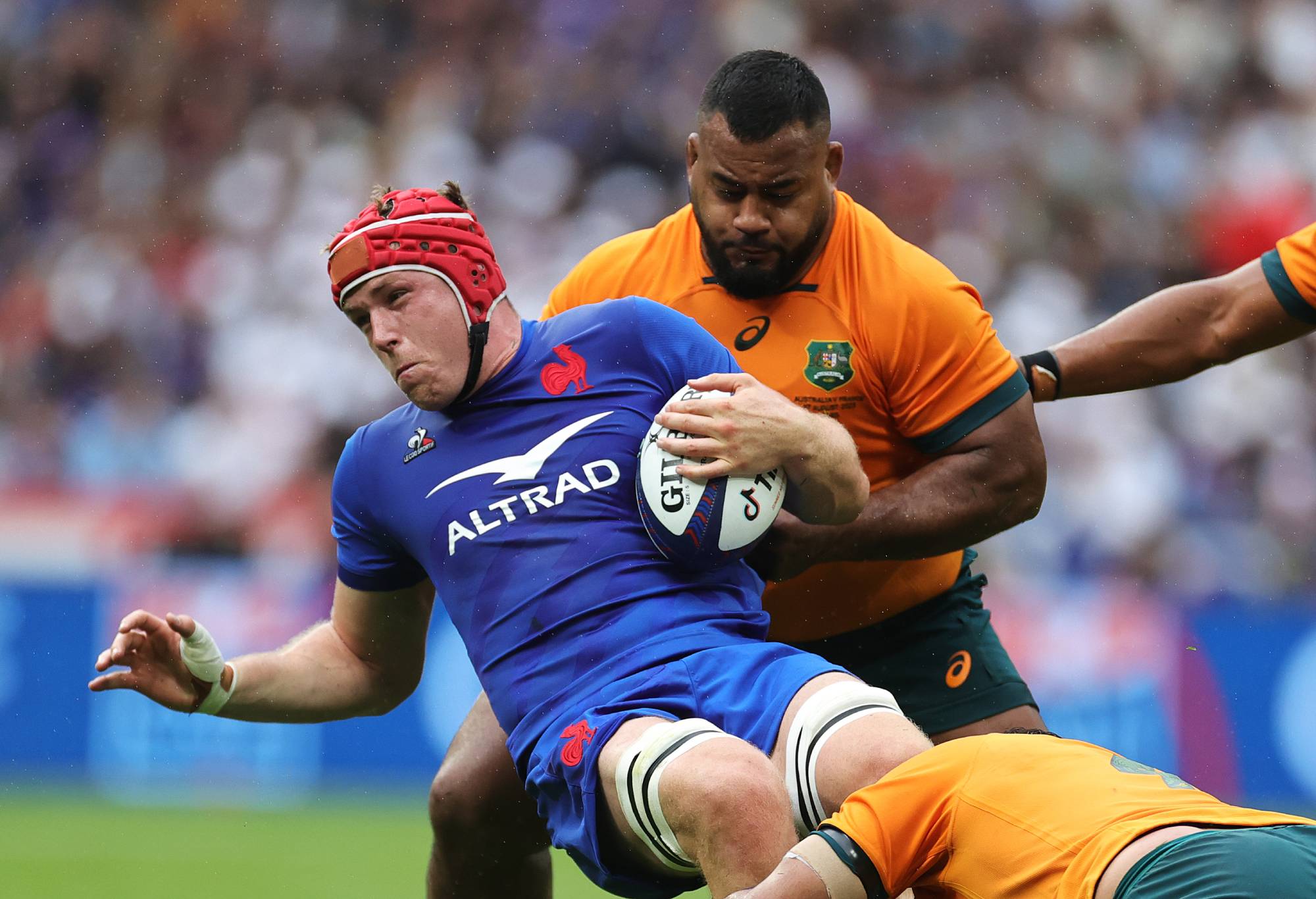COMPILATION: Eddie's best press conference moments from St. Etienne open training
Eddie Jones, Will Skelton and Carter Gordon talked about a lot of subjects after their first open training session, ahead of their first World…
Join The Roar
Become a member to join in Australia's biggest sporting debate, submit articles, receive updates straight to your inbox and keep up with your favourite teams and authors.
Oops! You must provide an email address to create a Roar account
When using Facebook to create or log in to an account, you need to grant The Roar permission to see your email address
By joining The Roar you agree to our Privacy Policy and Terms & Conditions
Login and get Roaring
Oops! You must provide an email address to create a Roar account
When using Facebook to create or log in to an account, you need to grant The Roar permission to see your email address
No one thinks French is rugby boring. Their current team has all the flair of the famous Les Bleus sides with a newfound consistency and resilience. The Wallabies were victims of this dangerous combination on Sunday night. Though in the disappointment of a rampaging Jonathon Danty and Penaud regathering genius attacking kicks to pile the score on, the Wallabies saw what they could be.
The French use their kicking to suffocate opponents and then punish mistakes they make, something the Wallabies are trying to emulate. With cross-field kicks to wingers, grubbers in behind and finally winning some kicking duels, Australia exerted more pressure than they ever had under Jones, but still had weaknesses that brought the plan apart.
When Eddie Jones took the job, he said that “if we kick the ball 70 times and we beat New Zealand, everybody is going to be happy, (If) we kick the ball 10 times and we get beaten 40-10, they’re going to walk out kicking stones”.
The idea was simple: possession rugby is dead, and territory is now king. If they carry powerfully and kick well, then the Wallabies will run over oppositions. A very French model.

Carter Gordon. (Photo by David Rogers/Getty Images)
This plan has not worked yet as Jones has still not won a game since taking the job, although the blueprint has become clearer. While Sunday’s result was disheartening, the French friendly is the best example of how Eddie wants the team to play.
Against South Africa, Eddie had clearly hammered home that kicking was the best option. Australia’s kicked the ball 32 times and their pass per kick rate was a staggering 3.3. There was barely more than a pass from a 10 before Australia kicked the ball. They were positionally obliterated on the night with a near comical 35% of territory.
Clearly there was work to be done. And so, the next week against Argentina they took the opposite approach, kicking only 13 times, pass to kick had more than doubled to 7.8 and the territory only slightly improved to 43%. In Bledisloe One they passed even more before kicking with a pass to kick of 8.6, and while the volume of kicks rose to 21, territory again improved but remained unfavourable at 48%.
Bledisloe Two instead saw the opposite approach, with more success. Australia kicked more and did it well. They kicked 26 times, but it did not feel artificial as it did against South Africa. While they were obviously beaten late, their game showed a huge improvement as they for the first time in Jones’ tenure, won a match’s territory with 51%.
This adoption of the French approach to kicking was striking on Sunday morning as both sides used kicking not just as defensive tool to clear from their half, but as an attacking weapon.

Thibaud Flament is tackled by Richie Arnold and Taniela Tupou. (Photo by David Rogers/Getty Images)
Suliasi Vunivalu showed his particular value, constantly threatening in the air and Carter Gordon worked into the game as Australia increasingly used kicking (28 times) to improve their position and then regain the ball. Australia dominated the game territorially with an incredible 63% and Eddie’s vision has become clear.
However, despite Australia either matching or dominating France in every statistical category, they were outclassed on the scoreboard, highlighting that Australia needs to fix some things to win matches against the best teams in the world.
Despite a relatively quiet game from Antoine Dupont, the cog in France’s kicking machine, the contrast between him and Tate McDermott was stark. Dupont is able to box-kick with both feet past halfway when in his own 22m.
Contrastingly, McDermott often seemed hesitant to box kick in situations where it was the logical option, instead passing back to Gordon or Kellaway who could only clear to the 22m.
Additionally, while McDermott offers attacking spark with his running capability he does not seem as certain around when to snipe and when to pass when on the front foot. His pass let him down on two occasions when inaccuracy stopped positive attacking opportunities from attacking kicks. Dupont conversely is the master of option selection, where he seemingly ensures France take the most clinical option in every break.

Eddie Jones. (Photo by David Rogers/Getty Images)
Further, Australia’s maul is not the weapon it is for much of the world. Australia used it five times but was unable to score directly from it, instead losing the ball or only scoring in the opposite corner. A concern as positive kicking creates opportunities to maul from lineouts in the opposition 22. This is interlinked with Australia’s generally poor ‘redzone’ efficiency (opposition 22) in the past 3 matches.
The Wallabies had 13 22m entries against France but only averaged 1.3 points per entry. Comparatively France had 12 but averaged 2.6 points per entry. A positive differential in 22m entries is enormously positive as this is the first time it occurred in Jones’ tenure and a far cry from the 3 to 20 figure against South Africa. 22m entries is good indicator of strong teams, as better teams create more opportunities close to the line.
Australian players have since alluded that there are set moves reserved for the World Cup which may well improve their red zone attack, but Gordon’s goal-kicking struggles are still a concern, especially compared to the metronomic Thomas Ramos.
On Sunday night, the Wallabies showed more promise than ever before in how Jones wants to dominate games through kicking, but they were also shown by a better team that conception is only as good as the execution.
The Wallabies will only get more comfortable with this play style through the World Cup and with more tricks up Eddie’s sleeve, they may quickly become like France, a team no one wants to play.